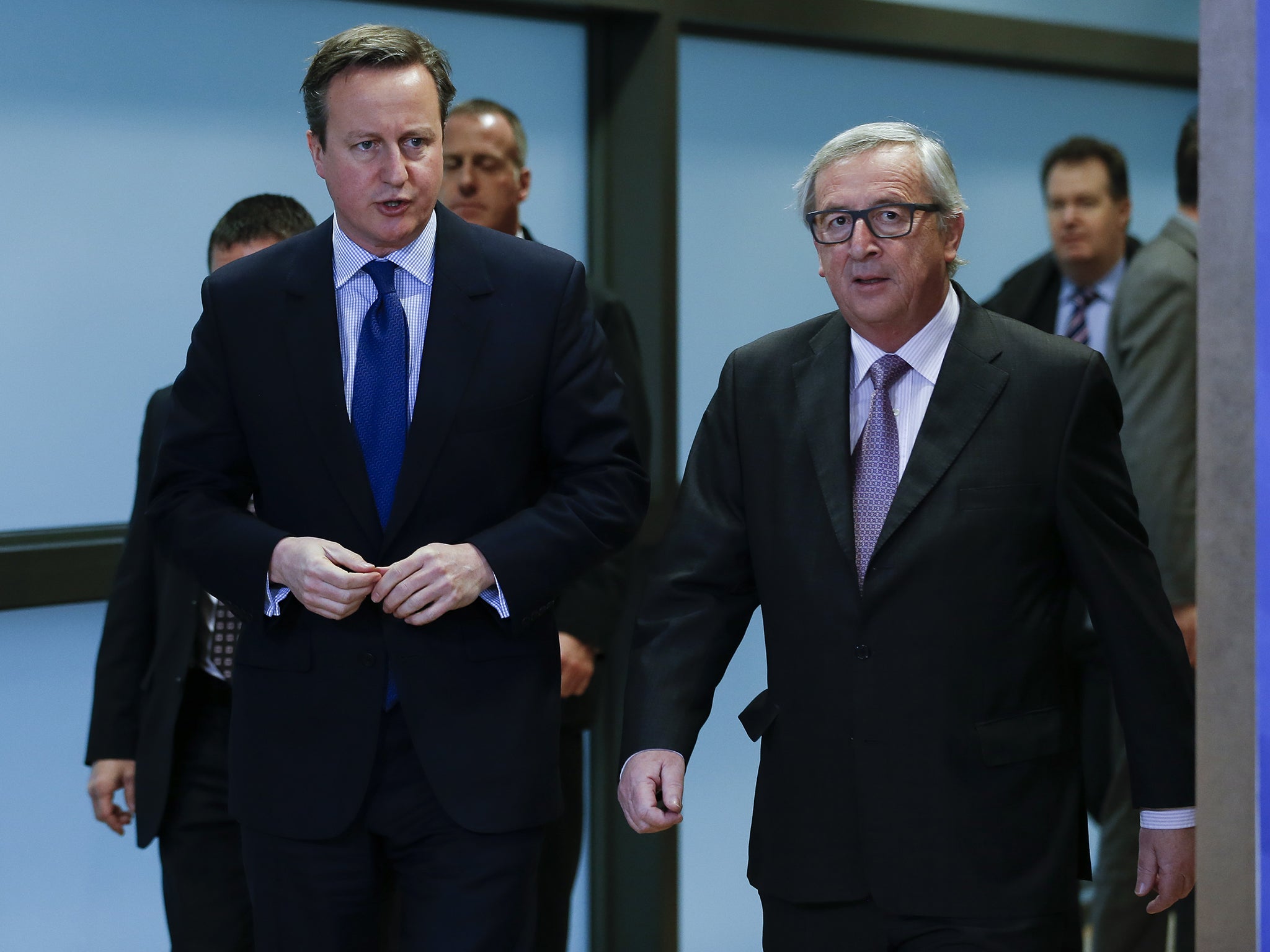Success, of a kind, in Brussels for David Cameron
David Cameron has put party before country, and merely put off the difficult questions for his successors to solve

Your support helps us to tell the story
From reproductive rights to climate change to Big Tech, The Independent is on the ground when the story is developing. Whether it's investigating the financials of Elon Musk's pro-Trump PAC or producing our latest documentary, 'The A Word', which shines a light on the American women fighting for reproductive rights, we know how important it is to parse out the facts from the messaging.
At such a critical moment in US history, we need reporters on the ground. Your donation allows us to keep sending journalists to speak to both sides of the story.
The Independent is trusted by Americans across the entire political spectrum. And unlike many other quality news outlets, we choose not to lock Americans out of our reporting and analysis with paywalls. We believe quality journalism should be available to everyone, paid for by those who can afford it.
Your support makes all the difference.The more David Cameron’s European Union negotiations go on, the clearer it becomes that hard decisions are being postponed until another day. From the start, this newspaper welcomed the referendum on democratic principle, but said that it was being held at the wrong time.
The crisis of the euro is in remission. It has not been solved. Most European governments accept that the union’s founding treaties will need to be revised in the next few years to make sure the currency union is sustainable. That did not suit Mr Cameron’s domestic political timetable. He promised the referendum to hold his party together and to minimise the threat from Ukip.
So far, that political mission has been successful. Ukip’s advance failed to prevent a Conservative majority and, although the few Tory MPs who are definitely opposed to EU membership are vocal, the big Tory split over Europe has not yet materialised. The mission to reform the EU and to renew its mandate from the British people, on the other hand, has been floundering. Mr Cameron is a pragmatist and proud of it. The Prime Minister has been sinuous in reflecting and appeasing public opinion, which is sceptical in the proper sense of the word about the EU. But even he must have had higher ambitions for Britain’s role in the EU than the pile of fudge that is currently being cooked up in Brussels.
Not that we are against fudge. Compromise is necessary in politics, and especially in European politics. But there is a dishonesty and a small-mindedness about the deal that seems to be emerging this weekend that is disappointing. Mr Cameron presents the denial of in-work benefits to new arrivals from other EU countries as a way of discouraging people coming here to work, but it is unlikely to have a significant effect on the numbers. Sir Stephen Nickell, a member of the committee of the Office for Budget Responsibility, said last month it would have “not much” impact.
Whether or not you agree with trying to curb the free movement of EU workers, therefore, the central clause of Mr Cameron’s renegotiation seems quite marginal to his declared purpose. Having accused Jeremy Corbyn of foreign policy by press release last week, Mr Cameron seems to be deciding this country’s place in Europe by symbolism, expectations management and choreography.
He must have hoped he could resolve his party’s difficulties on Europe once and for all. Yet it is becoming increasingly clear that he will do no such thing. The word “stopgap” that emerged from 10 Downing Street is most telling. It was evident early on in this negotiation that the British electorate would have to vote in the referendum on an IOU, a promise of treaty change in the future. It now seems as if it might be asked to vote on a set of temporary measures without knowing how long they might last, and whether there will be another referendum when the EU treaties are finally revised.
Just as James Callaghan described the 1975 referendum, five years before it was held, as a “rubber life-raft into which the whole party may one day have to climb”, Mr Cameron hoped to avoid this referendum. Just like Harold Wilson and Callaghan, he ended up putting party before country. Even he must have hoped for a grander and more definitive European settlement. Instead, he has merely put off the difficult questions for his successors to solve, and he has provided an inglorious sideshow to the continuing crises in Syria and Libya that are leading to the drowning of refugees in the Mediterranean.
Pragmatism and party management are all very well, but this is an outcome that will be admired only by students of political wheeler-dealing. It is hardly statesmanship.
Join our commenting forum
Join thought-provoking conversations, follow other Independent readers and see their replies
Comments